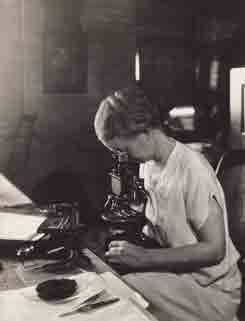Effie Alberta Read earned a Ph.D. and a M.D. before American women earned the right to vote. She was among the best trained analysts when she joined the U.S. Food and Drug Administration (FDA) in 1907. And one of the only women in the agency’s Bureau of Chemistry. Her accomplishments as a food safety pioneer are being spotlighted by the FDA during Women’s History Month.
 Read earned her Bachelor’s (1903), Master’s (1906), and Ph. D. (1907) degrees from Cornell University. She wrote her Ph.D. dissertation on “the olfactory apparatus in dog, cat and man” and taught histology and embryology while pursuing her graduate degrees. Five years after she joined the FDA, she earned her M.D. from George Washington University.
Read earned her Bachelor’s (1903), Master’s (1906), and Ph. D. (1907) degrees from Cornell University. She wrote her Ph.D. dissertation on “the olfactory apparatus in dog, cat and man” and taught histology and embryology while pursuing her graduate degrees. Five years after she joined the FDA, she earned her M.D. from George Washington University.
“Although Dr. Read did not publish widely, she dedicated herself over the next two decades to developing and executing crucial microchemical procedures to detect adulterated products; her work represented an unsung scientific cornerstone in the enforcement of the 1906 Food and Drugs Act, the first comprehensive consumer protection law in the U. S.,” according to the FDA’s report. The 1906 Food and Drugs Act outlawed interstate commerce of misbranded and adulterated foods, drinks and drugs. It was signed into law by President Theodore Roosevelt the same day as The Meat Inspection Act, which was introduced after Roosevelt read Upton Sinclair’s novel The Jungle. The book’s portrayal of unsafe and insanitary conditions in meat-packing plants, prompted Roosevelt to launch an investigation into the meat-packing industry which lead to the reforms outlined in the new law.
Read developed a new way to identify artificially colored imported teas, which were illegal as artificial color was used to conceal inferior products. The method offered rapid reliable detection and could be performed with equipment commonly found in most laboratories.In one high-profile case in 1912, Read’s method was used to help secure a judgment against 1,000 packages artificially colored tea from a Tennessee importer who was hoping to pass off inferior product.
Read spent her entire career in the Bureau of Chemistry’s Microanalytical Laboratory, where she served as the Assistant Chief at the time of her departure, according to the FDA, in August 1930. She died three weeks after she retired.




